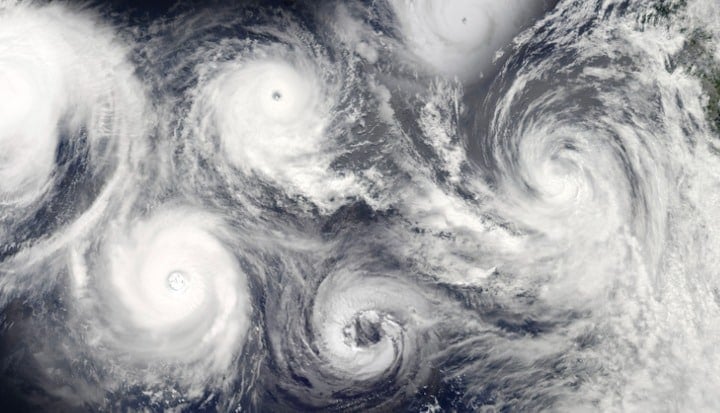If you’re struggling to wrap your head around the multiple crises facing the world right now, the phrase “global polycrisis” may help you get a sense of just how truly awful things are. The term reared its head at the just-completed World Bank Annual Meetings, and is forebodingly described by the Cascade Institute as happening when “crises in multiple global systems become causally entangled in ways that significantly degrade humanity’s prospects.”
You might think that the latest in the series of self-imposed crises in the UK has coloured my thinking. The fact is though that across the world, a confluence of challenges–notably, COVID, conflict and climate change–is driving a poverty tsunami that is already crashing into people’s lives (something I explore further in this briefing paper). A new study in the UK on the cost of living crisis has found that six out of ten adults are struggling to pay their bills. Globally, the latest World Bank analysis suggests that it is the poorest people who have been impacted the most with 2022 set to be the “second-worst year for poverty reduction in the past two decades (after 2020)”.
It’s easy to imagine humanity being frozen into inaction in the headlights of such terrifying prospects. In fact, the pandemic showed the reverse is true. Facing a common challenge, people stood up as community leaders and organisations threw aside typical bureaucracy to partner in ambitious and rapid ways, such as in Kenya to drive access to health and hygiene. In the face of the global polycrisis, we need to do the same.
This applies to business too. Surveys show that employees and customers expect businesses and their CEOs to stand up on the social and environmental issues they care about. There are two big caveats though, coming from opposite ends of the spectrum. First, there is impatience with companies who say but don’t do. The UK advertising watchdog recently called out HSBC on their overstated environmental claims.
And second, there is an increasingly vocal group (particularly in the USA) claiming that taking account of environmental, social and governance (ESG) issues is “woke” capitalism and bad business. Business needs to address both head-on; the first by authentically and consistently embedding ESG into their core business, and the second by doubling down on making the case that doing so is not only good but critical for long-term business success.
Beyond that, there are immediate and practical things that businesses can do to support those people and communities most impacted by the current set of crises. While there are many, here are three, organised around an illuminating framework developed by Jane Nelson, Director of the Corporate Responsibility Initiative at Harvard Kennedy School.
Take action through your core business
The most urgent and practical step business can take is to commit to paying a living wage. In our recent report with the Cambridge Institute for Sustainability Leadership, we show that paying living wages pays back for business, strengthening business performance, resilience and stability, and creating measurable social impact.
Think strategically about your philanthropy
The pandemic and more recent financial pressures are threatening the survival of many front-line charities. Our toolkit, developed during COVID, recommends taking a more flexible approach around shared priorities. Supporting international and local NGOs who are helping those impacted by the war in Ukraine and by the imminent risk of famine in the Horn of Africa are two obvious focus areas.
Use your voice to make a difference
With the COP27 climate summit in Egypt fast approaching, businesses have a critical role to ensure that climate action puts people at the centre; recognising that existing inequities–due to factors such as gender, race and income–exacerbate the risks to people’s lives and livelihoods, and also curtail opportunities to participate in the transition to a green economy. We’ll be there for our hybrid Business Fights Poverty Climate Justice Summit on 9 and 10 November and you can register to join online for free with the code COP27LI.
As author James Lane Allen famously said, “Adversity does not build character, it reveals it.” In the face of this global polycrisis, it’s time for businesses to reveal their true character.










